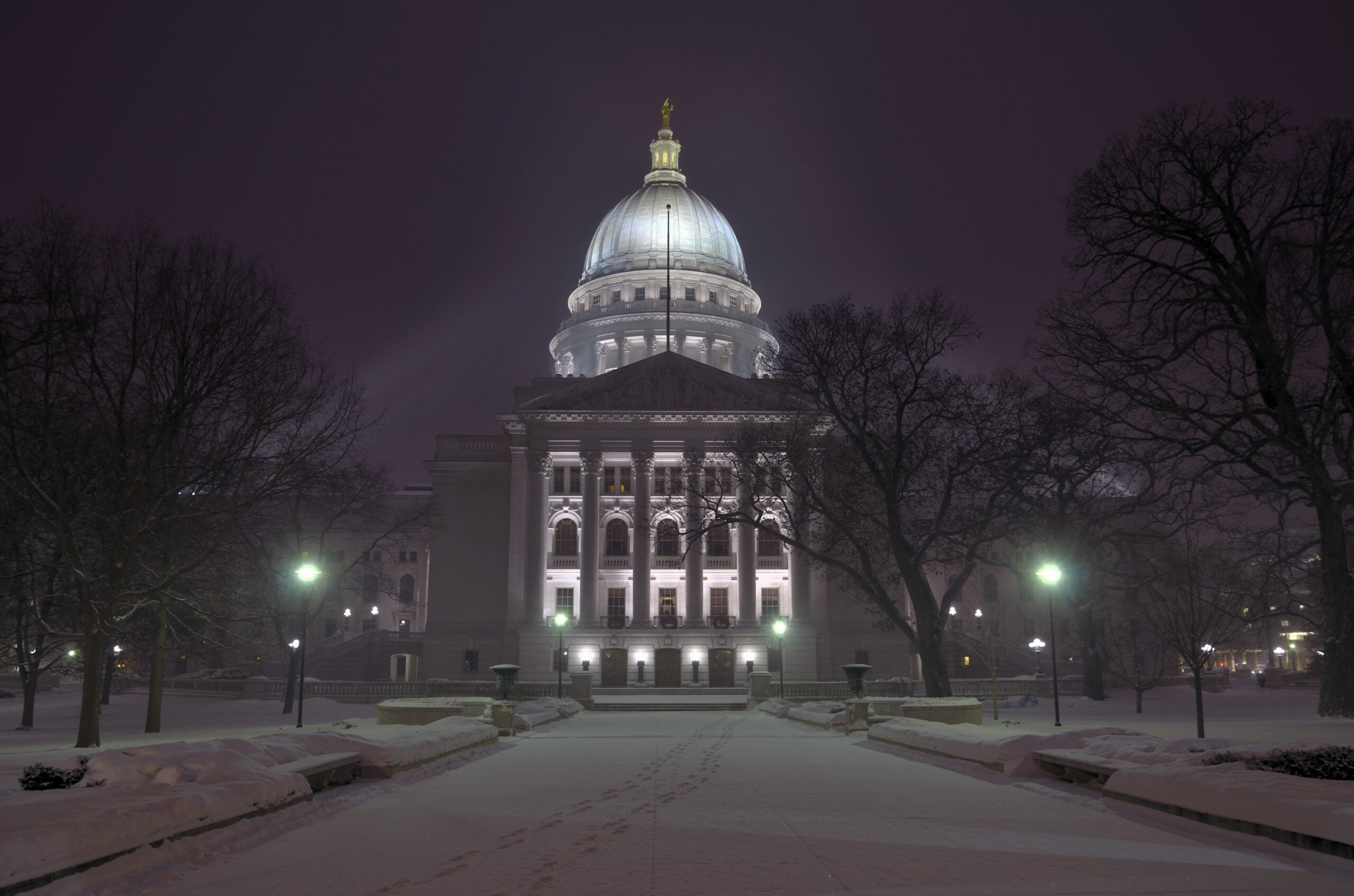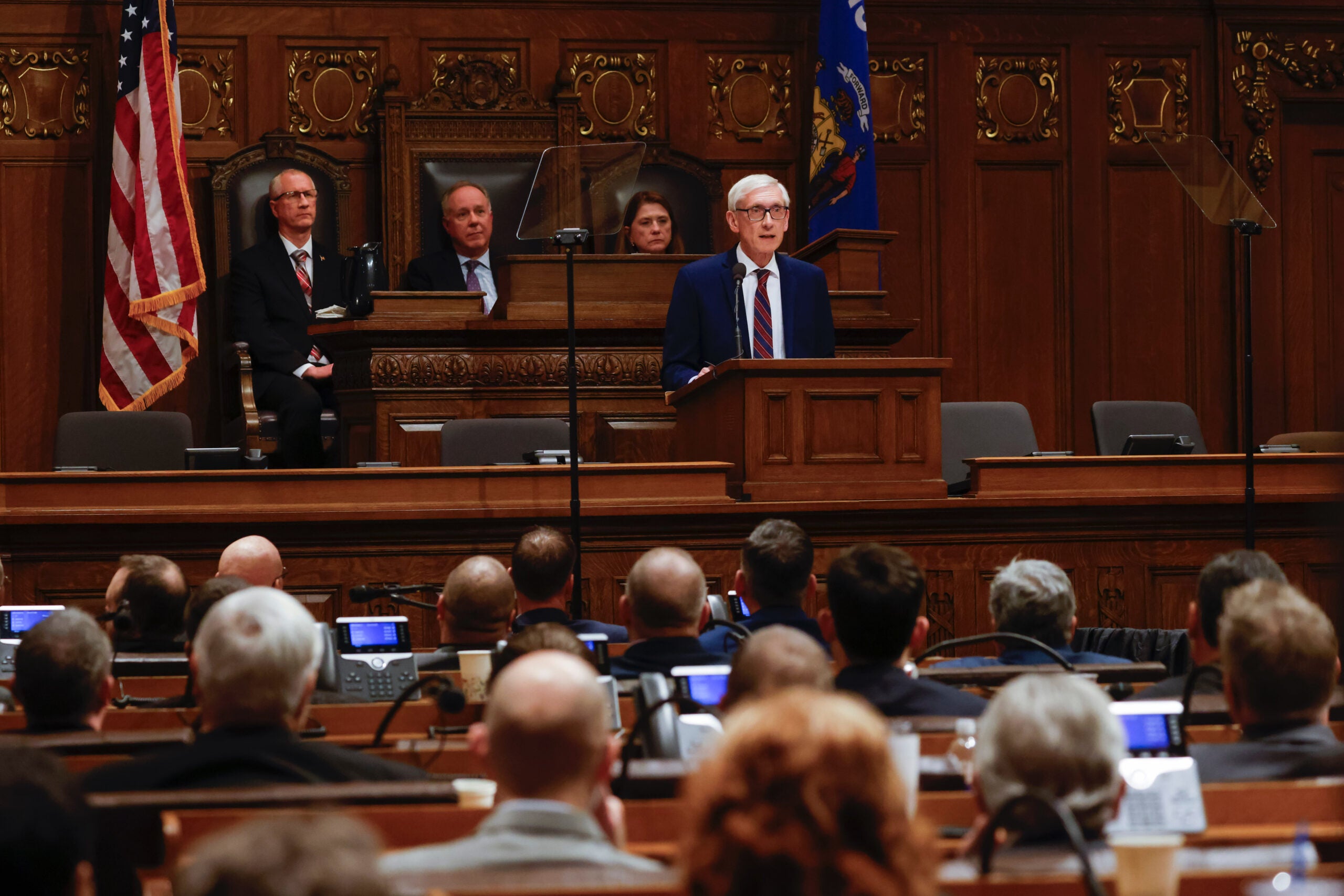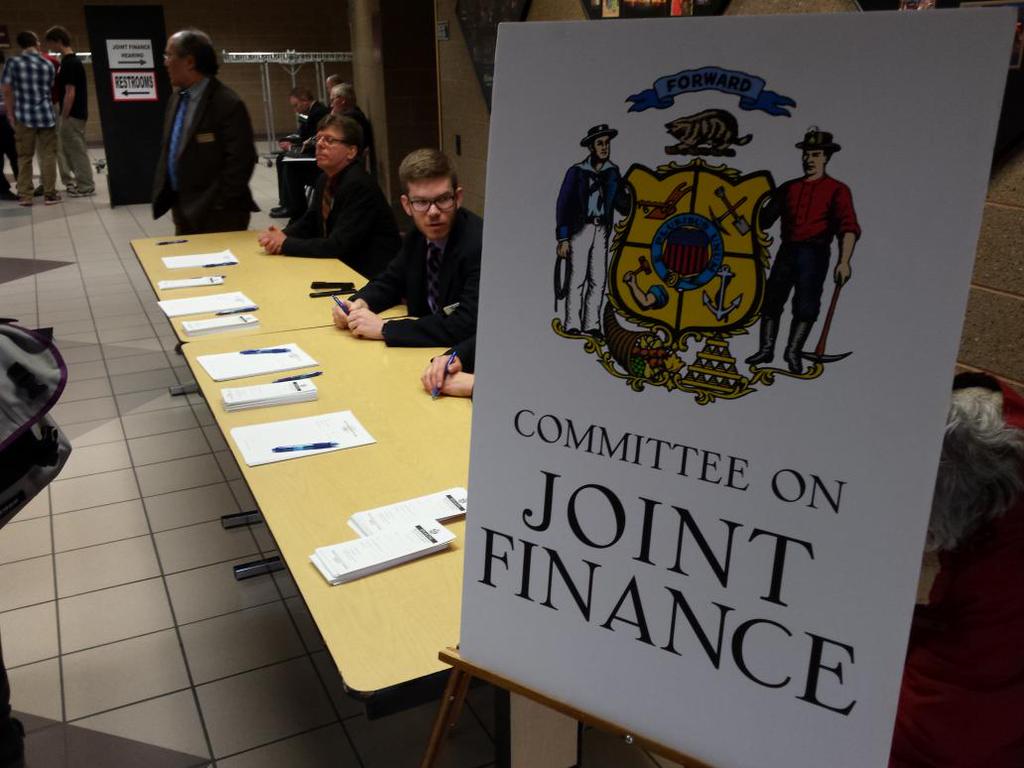Republicans on the Legislature’s finance committee passed a bill Monday that would cut income and property taxes by about $292 million in the next budget year, setting the stage for the full Assembly to sign off on the plan later this week.
But while the proposal has broad GOP support, it stands in stark contrast to a plan by Gov. Tony Evers that would spend part of a projected windfall in the state’s budget on schools instead.
The GOP proposal, which was unveiled for the first time Friday, would also make a one-time payment of $100 million to retire state debt, bringing the cost of the total package to about $392 million during the next fiscal year.
Stay informed on the latest news
Sign up for WPR’s email newsletter.
“This is something we should all be voting for,” said Rep. John Nygren, R-Marinette, the co-chair of the Legislature’s Joint Committee on Finance. “We should be able to celebrate our success.”
Democrats disagreed, calling the GOP proposal a case of misplaced priorities.
“Why not take some of that and put it where the people want it? Education and public schools,” said Rep. Chris Taylor, D-Madison. “What this bill shows is your priority is tax cuts over public education.”
RELATED: Republicans Unveil Proposed Income Tax Cut
Republicans and Democrats have been talking in general terms for weeks about what to do with a projected windfall in the state budget.
The Legislature’s nonpartisan budget office projected last month that the state would see an $818 increase in tax revenue over the course of the current budget cycle, which ends on June 30, 2021.
Evers said earlier this month he wanted to use about $250 million of that funding on public schools, with an emphasis on school-based mental health initiatives, special education and property tax relief. The governor’s plan would also return the state to the days when it funded two-thirds of the cost of public education, a benchmark Evers noted that GOP lawmakers had previously said on multiple occasions that they support.
Republicans essentially rejected Evers’ proposal before it was even formally introduced, saying the governor knew their top priority was cutting taxes, and they would not budge from that.
Their income tax cut would increase the standard deduction for individuals who earn less than $120,360 per year and families with incomes up to $144,669. The average income tax reduction would be $106. It would cost state government about $247.7 million in the next fiscal year.
The GOP property tax cut would go to manufacturing businesses that pay the personal property tax on machinery, tools and patterns. The state would reimburse local governments to offset the lost revenue at a cost of nearly $45 million per year.
The plan passed the budget committee on a 10-4 party-line vote with two Republicans absent.
A spokesperson for the governor did not respond to a request for comment, but Evers’ office issued a statement last week that was critical of the GOP plan.
If Evers vetoes the plan and Republicans don’t pass his school funding bill, it would mean the windfall of projected revenue would be available for the next two-year budget, which Evers will introduce a year from now.
Agriculture Bills Advance
The budget committee also signed off on several bills designed to help farmers, including two that were introduced by Evers as part of a special session on agriculture.
But they did not take up six other agriculture bills introduced by Evers, opting to pass several Republican-authored bills instead.
The measures that passed committee Monday include one that would create a new refundable tax credit to offset property taxes that farmers pay on agricultural buildings. That proposal, which would cost the state an estimated $27 million per year, would sunset after the 2022 tax year.
They also include a bill that would let more farmers deduct the cost of their health insurance on their income tax bills, a move that the state Department of Revenue projects will cost the state more than $9 million per year.
The budget committee also passed a GOP bill that would spend $1 million per year on state specialists providing extension services at the University of Wisconsin-Madison.
Those GOP bills and others passed the committee on unanimous votes as lawmakers talked about the need to help small farmers, many of whom had suffered through a disastrous 2019.
“You can’t plan for how crappy of a year it was last year,” said Rep. Amy Loudenbeck, R-Clinton. “You just couldn’t.”
One of the Evers special session bills that passed committee would spend $1 million and create two new jobs at the state Department of Agriculture, Trade and Consumer Protection to help the state boost agricultural exports.
The other would set aside $600,000 per year on dairy processor grants.
Those proposals also passed unanimously.
Also Monday, the budget committee voted unanimously to make several changes to Wisconsin’s tax code to more closely align it to the federal tax code. The changes would reduce state tax revenues by about $18 million in the current budget
Lawmakers also voted to release about $500,000 per year in state funding for grants to homeless shelters that was called for in a bill that recently passed the Legislature.
Wisconsin Public Radio, © Copyright 2025, Board of Regents of the University of Wisconsin System and Wisconsin Educational Communications Board.





